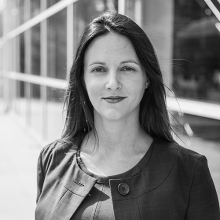Reducing Costs and Delays by Addressing Discovery Disputes Without a Written Motion
In an article in the March edition of The Colorado Lawyer titled "'No Written Discovery Motions' Technique Reduces Delays, Costs, and Judges' Workloads", Colorado attorney Richard P. Holme touts the “no written discovery motions” technique, whereby the court addresses all discovery disputes with an in-person or telephonic discovery hearing instead of a written motion, at least at the outset. Where the dispute does not lend itself to a short hearing, the judge can allow briefing. Among others, this technique is employed by Holme's co-contributors to the article: Colorado state court judges David Prince, Edward Bronfin, and Robert McGahey; and U.S. District Court Judge R. Brooke Jackson. Holme chairs a Steering Committee of the American College of Trial Lawyers, which is working with IAALS to interview judges around the country—including the aforementioned judges—on best practices for pretrial case management.
According to Holme, this technique presents a number of advantages for the judge and the parties. First, it creates an incentive for meaningful conferral and resolution of some, if not most, disputes early on. Second, it reduces “distant courage,” which is the practice of speaking to someone from a distance in a manner that one would not if the parties were face-to-face. Lastly, because most disputes can be resolved during a five- to thirty-minute hearing, resolution is far more expeditious than had parties fully briefed the issue, saving clients time and money. A similar process has been incorporated into the Southern District of New York Pilot Project Regarding Case Management Techniques for Complex Civil Cases, which took effect on November 1, 2011.


